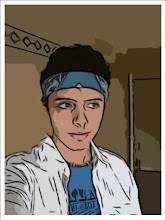
Well, Marie Antoinette sure did cause a lot of Frenchies to get their tits stuck in the grinder at Cannes Film Festival, greeting it with boos and groans and inevitably throwing mouldy baguettes at the screen.
Ignoring the bare presumption from an America crew to film a movie about the French Revolution (Kirsten Dust admitted some Americans would be upset if a French crew came to American to shoot a film about Thomas Jefferson), the main focus here is the pure grandiloquence and frivolity, the so-called historical inaccuracy and the bizarre mingling of styles.
I didn’t enjoy this movie as much as other Sofia Copolla’s other hits (especially the wonderful Lost In Translation), but her endeavour here is something to be embraced rather than vilified.
Britain especially has had the flesh-eating cancer of bog-standard Period Dramas lurking in its bowels for decades. Full of characters with names like Tamara Pennyworth and Jeremiah Dewbottom, who eat too many lemon blueberry scones and who take an age to say the simplest thing. Though the story of Marie Antoinette possesses a lot more inherent richness, I still very much admire Copolla’s ability to glamorise it even further.
Most prominent in Copolla’s mindset would be the excessively pampered and ostentatious lifestyle of Marie Antoinette – and that was very colourfully blown out of proportion in the film in a delightful way. Nothing has to be taken literally – Copolla admitted that much of the film was based on clichés and myths – but I think of this as the basis of its charm. Leave the facts and figures to history books and documentaries, because this is a way of telling the story in a glamorous (albeit slightly playful) manner, which is much more entertaining.
Another question thrust in the direction of Coppola has been the topic of her choice of music, but this again I advocate. In the 21st century we have a wealth of musical textures, all of which create various atmospheres. I certainly don’t believe that this film should be bound by the one-dimensional music that was on offer during the film’s period setting, even if Mozart and Haydn did produce some great music. One of my favourite songs in the film is Tommib Help Bus by Squarepusher, a beautiful keyboard arrangement that just oozes atmosphere, and is such an appropriate song for this scene in which it plays (a peaceful montage of the corners of Marie Antoinette’s room). Hong Kong Garden by Siouxsie and The Banshees is also a great choice of music to accompany one of the party scenes.
The film may well present a mish-mash of accents, it may feature that debunked infamous line (“Let them eat cake”), and it may cut out (no pun intended) the gruelling trial and eventual beheading of the Queen. But I believe you can take what you want from stories, and Sofia Coppola has portrayed the story of Marie Antoinette in an enjoyable, accessible style. We’ve endless access to dull, bloaty period dramas – but in Marie Antoinette we have a classical tale with a much needed touch of glitz.




No comments:
Post a Comment